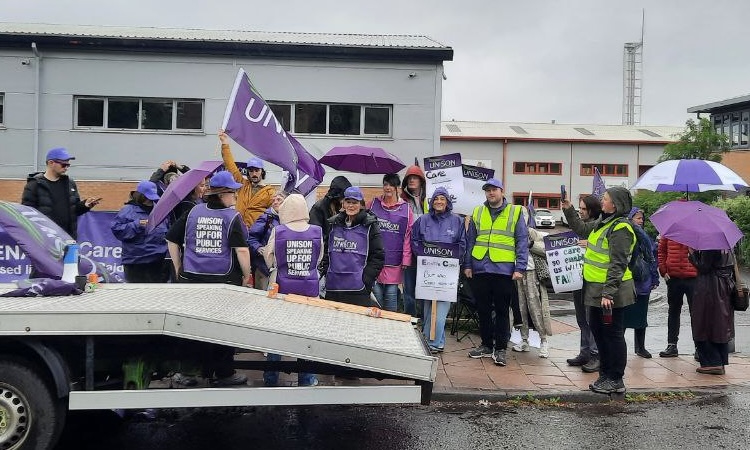Plans revealed in the Queen’s speech to start criminalising transport strikes come at a moment when railworkers are in the middle of a bitter struggle to maintain the safety-critical role of guards on every train run by South Western Railway, and it is clear that the government would dearly like to use the threat of legal action to undermine the sound record of industrial militancy notched up by rail union RMT.
The government, fearful of the threat of a good example, wants to pick off the RMT, further weakening the resistance offered by the trade union movement as a whole.
Right on cue comes an article in the Financial Times penned by one John Ralfe. Reporting that the RMT is balloting its members for a national strike in defence of the existing railway pension scheme (RPS), Ralfe demands that the existing pensions arrangements, put in place when the railways were privatised in 1994, be torn up.
Instead of setting the retirement age at 60 and linking pension payments to the worker’s final salary, he wants to substitute a much inferior defined contribution scheme. (Britain’s railway mess will not be sorted until pensions are reformed by John Ralfe, Financial Times, 9 January 2020)
The article calls for the government to renege on its commitment to pay the pensions agreed to in 1994, so stealing the deferred wages earned by railworkers. The trouble is, we are told, the RPS has made some duff investment choices: it “has taken a huge equity bet for many years and lost”, leaving it with “80 percent of its portfolio in equities”. As a result, the RPS has wound up with an £11bn deficit.
All very interesting – but what has this to do with a worker’s right to get back in retirement the deferred wages he earned when working? It’s up to the RPS and the government to work out how to meet their debt obligations, not the workers.
Whilst the government works out how best to fleece workers out of their pensions, the privatised train operating companies by contrast enjoy a charmed existence.
The FT article is illuminating: “Although train operating companies must pay regular and deficit cash contributions over the life of a franchise, they have no liability for a deficit when the franchise ends.
“The deficit is simply passed on to the next company taking over the franchise, in a game of pass-the-parcel. If no one is prepared to take on the franchise, it passes back to the government.”
As the size of the deficit ‘parcels’ landing in the government’s lap became alarming, the Department for Transport last year disqualified three franchise bids from Stagecoach “for submitting non-compliant bids principally in respect of pensions risk”. The issue is currently rumbling along in the courts.
Railworkers in Britain, like their comrades in France, will do well to resist this latest attempt to make workers pay for the capitalist crisis by robbing their rights to a decent retirement.










